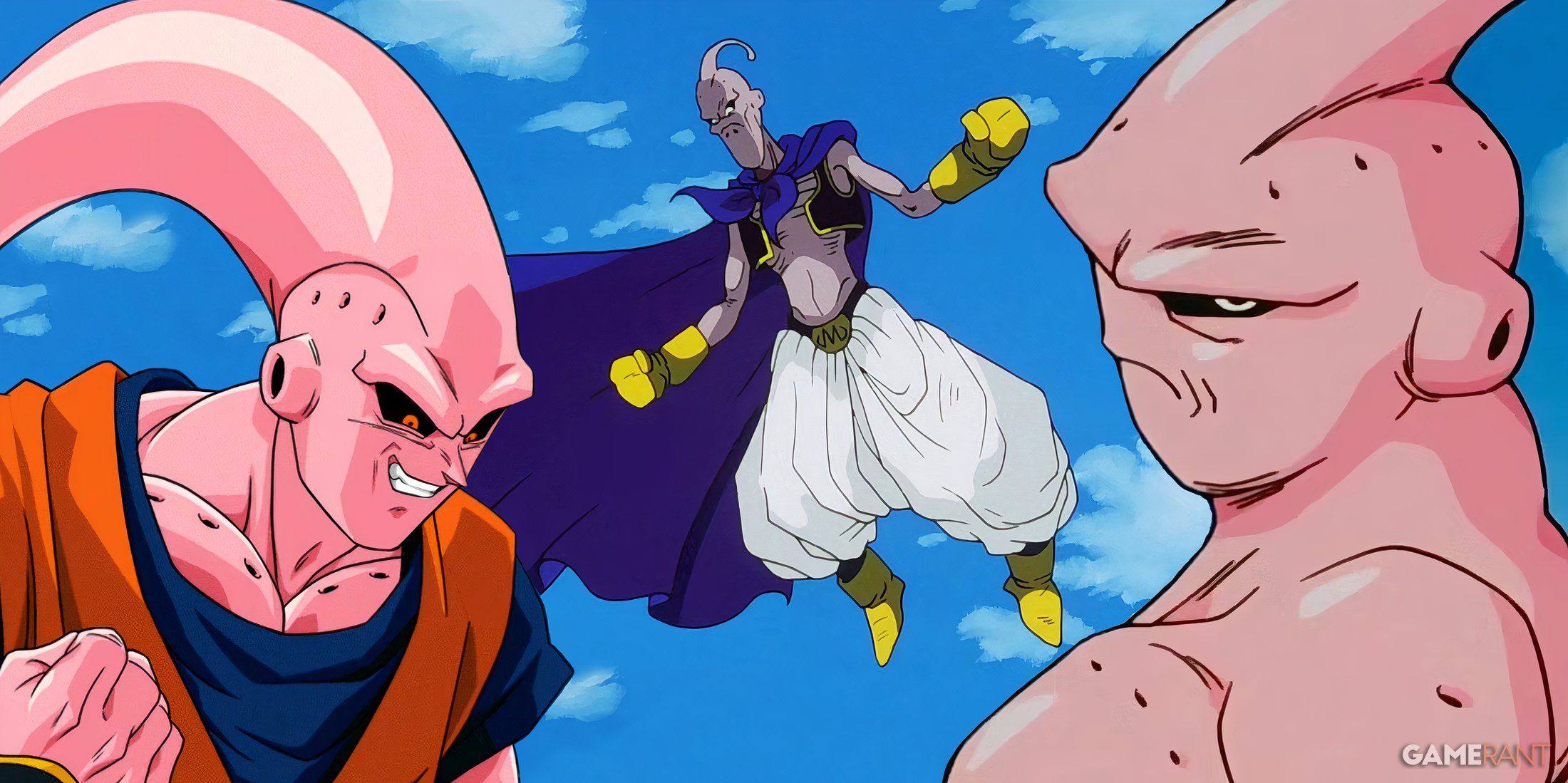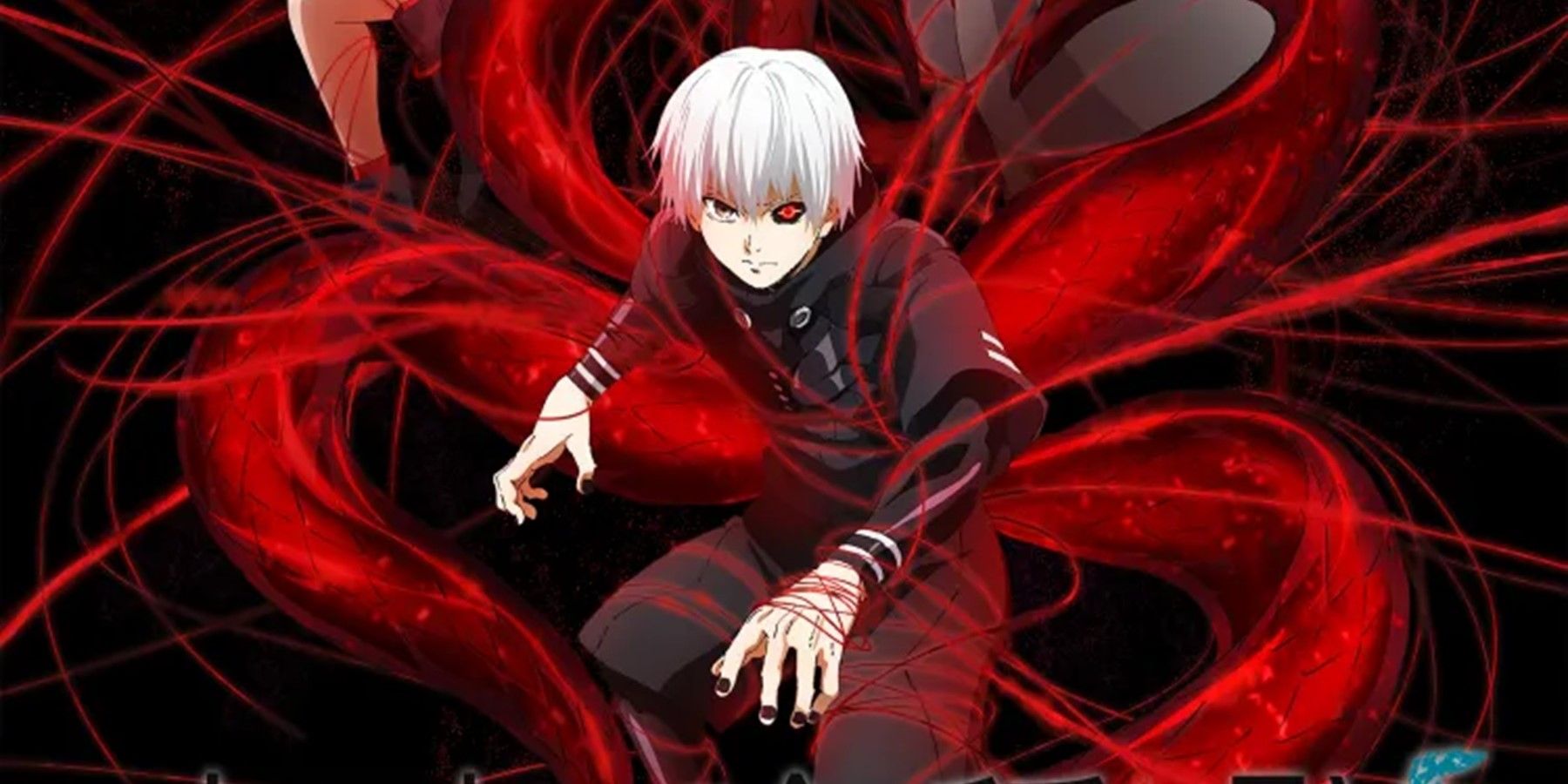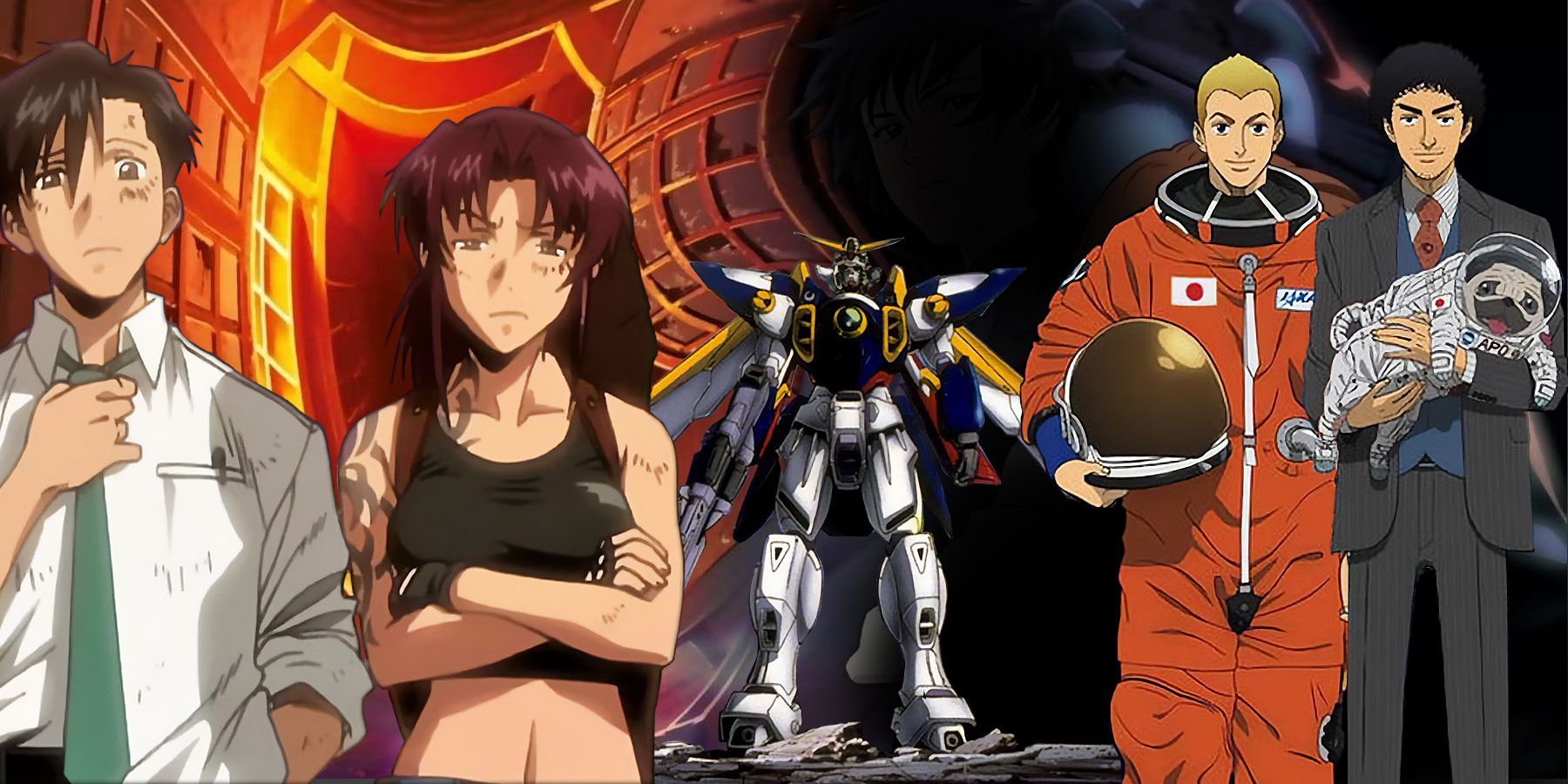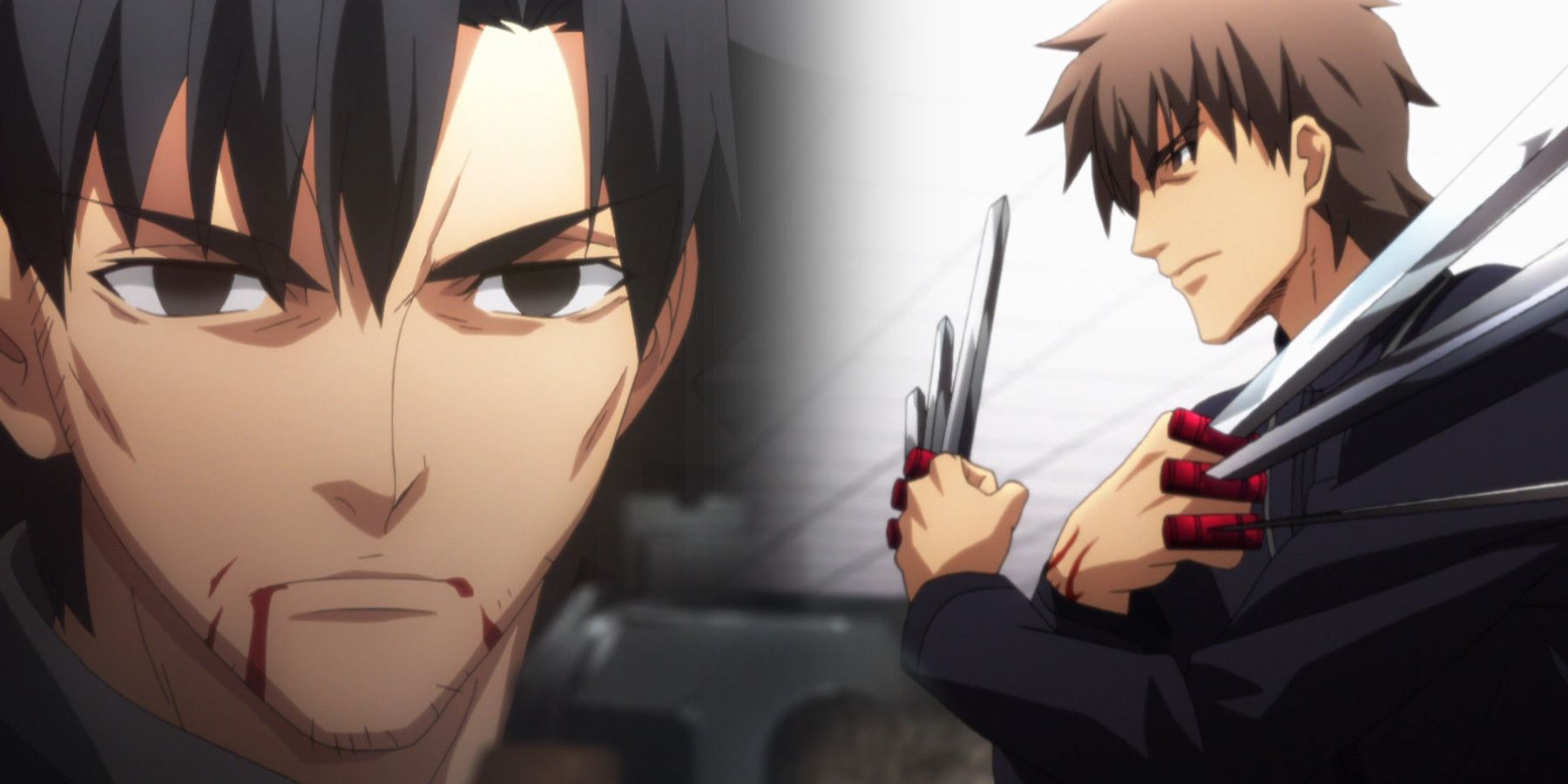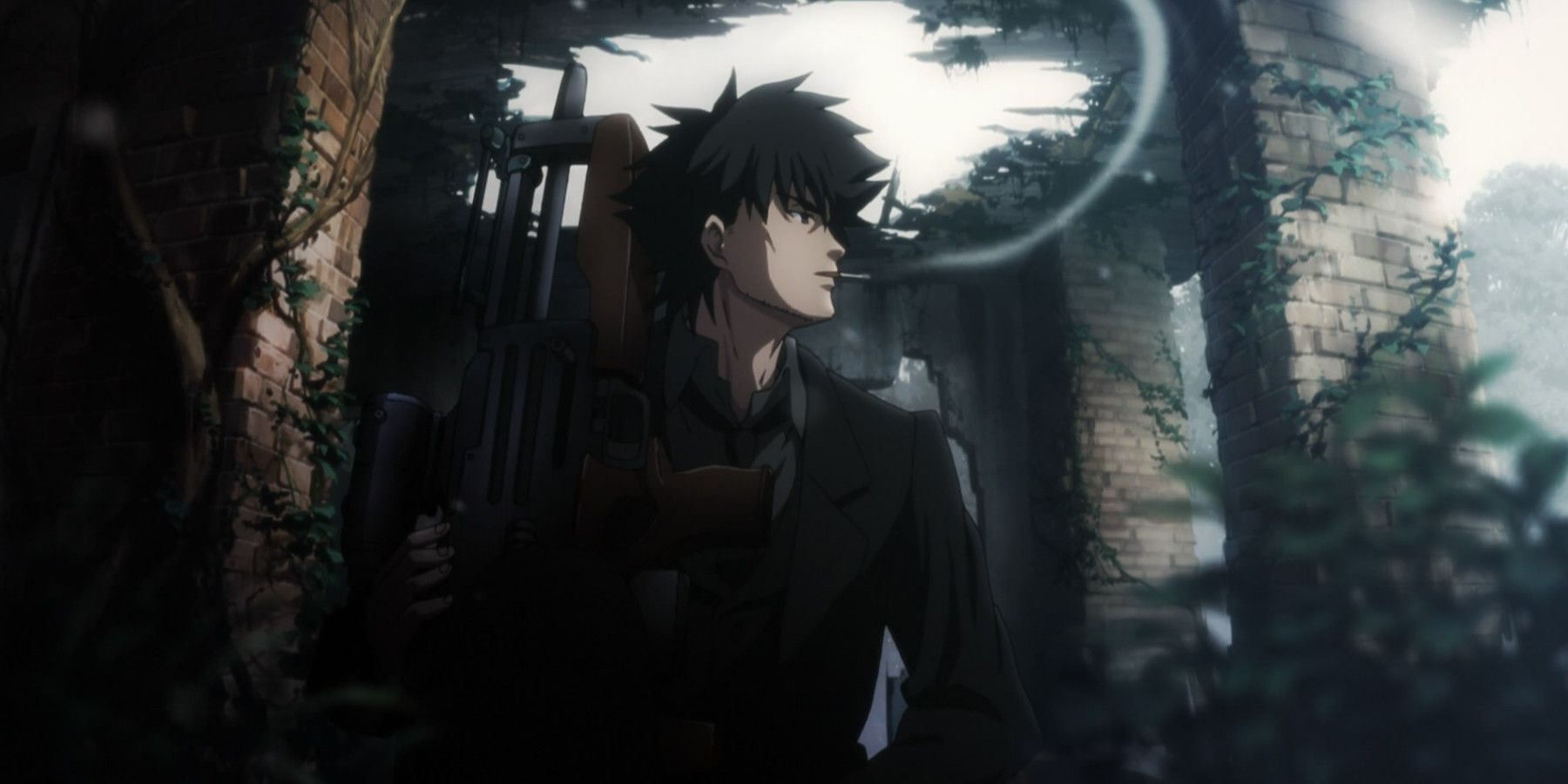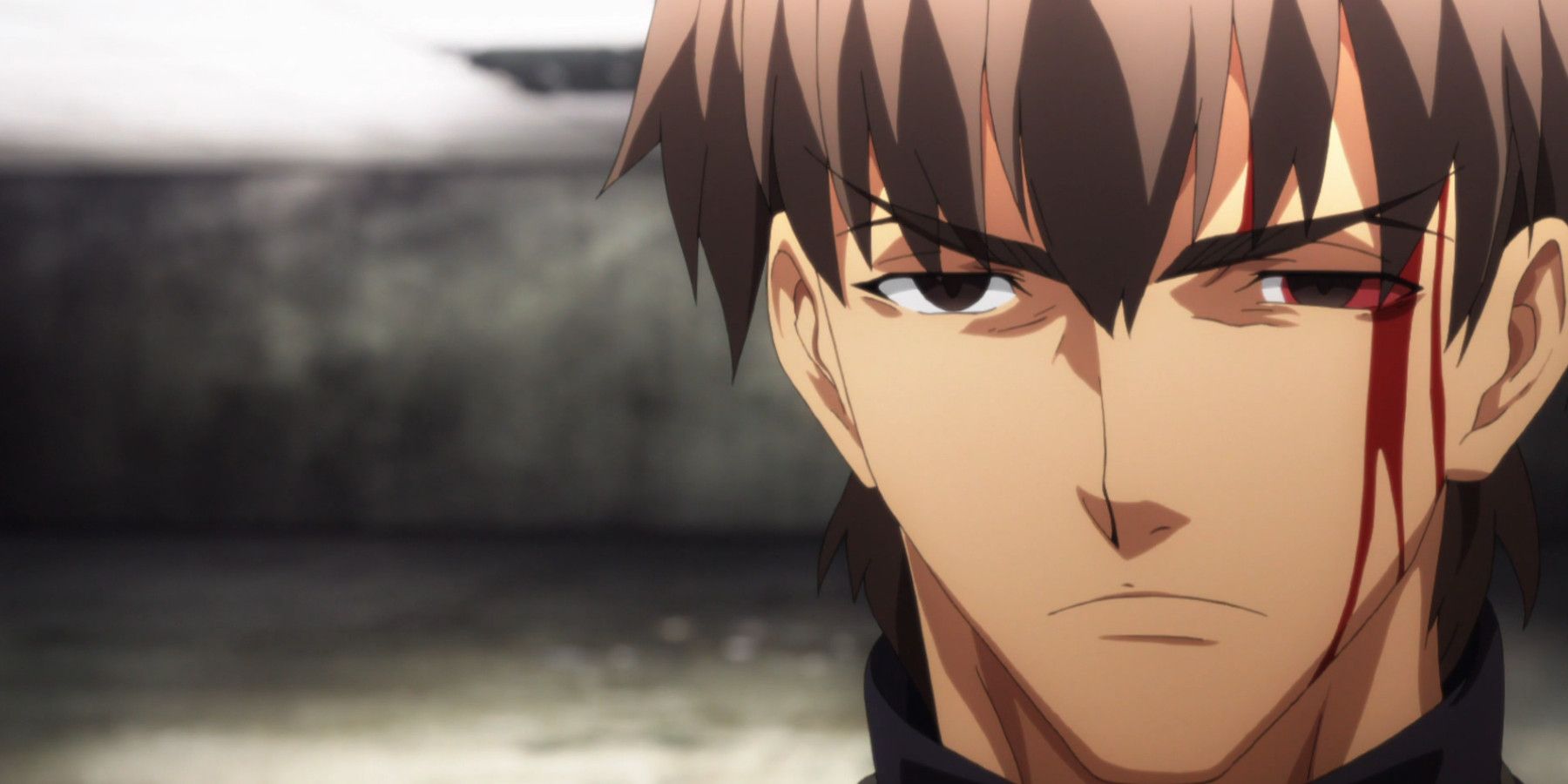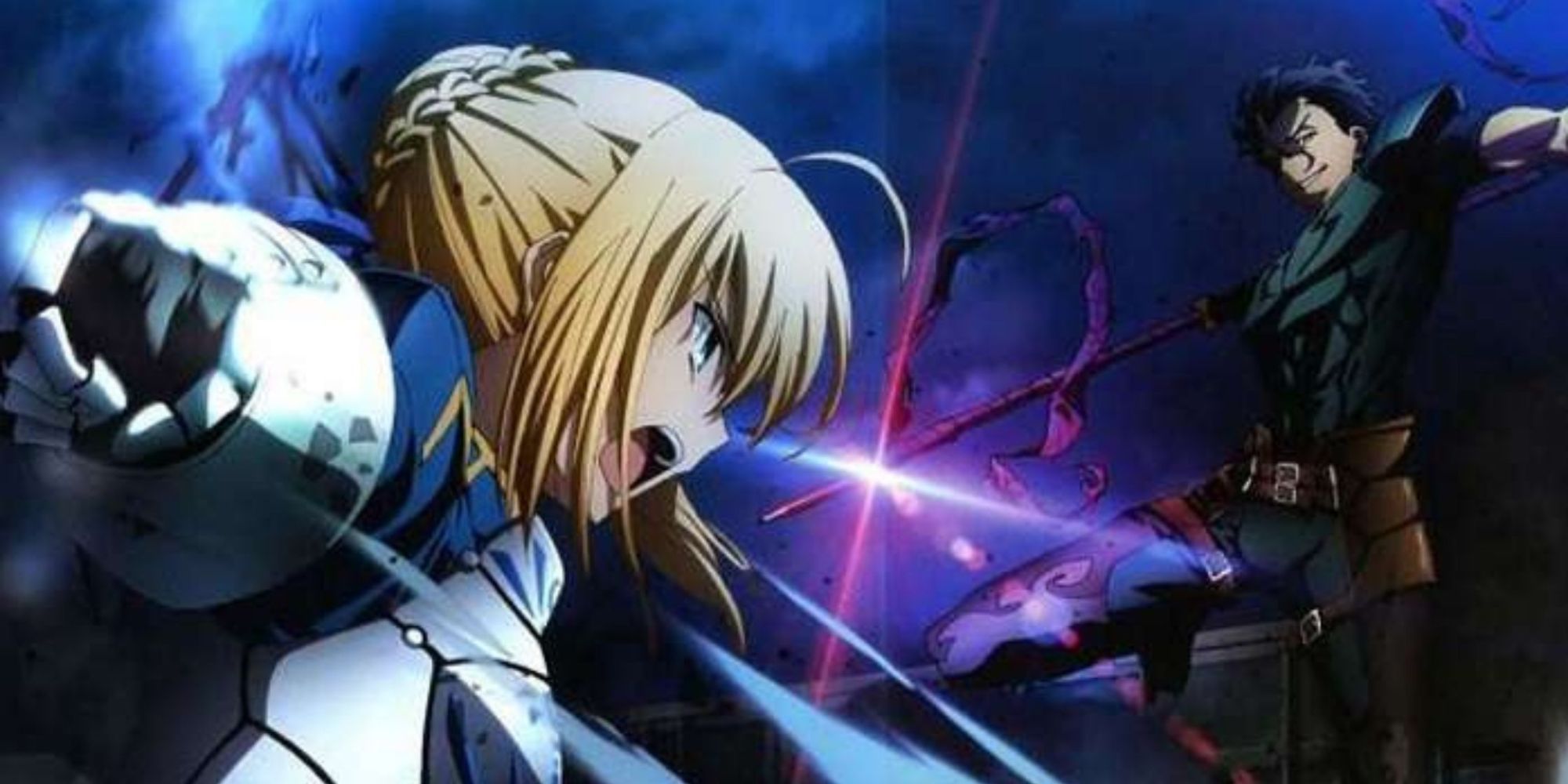Gen Urobuchi's Fate/Zero is regarded as one of the high marks of the Fate mythos and the perfect prequel to the already acclaimed Fate/Stay Night, but its battles were something special. In what is often called an anime Game of Thrones, the story's Holy Grail War was relentless, smart, and dripping with philosophical and interpersonal drama.
Over 24 episodes, the players all battled one another, taking pieces off of the board one by one and revealing more and more of their dark side in the process. In the final episodes, it came down to two major parties: the agent of the Holy Church, Kirei Kotomine, and the Mage Hunter and aspiring Hero of Justice, Kiritsugu Emiya.
The Combatants
While there are a few key characters that can be considered the main characters of Zero, Kiritsugu Emiya may be the single most central character in the grand scheme of things. He's an uncharacteristic participant in the Holy Grail War, having courted favor with the Einzbern clan to be sponsored as a master, despite a storied career as a hunter of mages. His attitude, his ethic, and his strategies are all more comparable to a world-class assassin rather than any typical master if masters can even be typical. Using his intelligence and his reconnaissance of other masters and servants, he adeptly avoided getting picked off throughout the war and found himself at the end, though not without playing some dirty tricks.
Kiritsugu is someone that will perform any manner of cruelty to win the war so that he can end suffering on Earth, believing that the ends have to justify the means. The promise of the Holy grail makes his fighting worth the blood on his hands, so long as he can make a better world for his daughter; for everyone.
On the opposite side is Kirei Kotomine, who begins the story completely directionless. He is a skilled agent and a devout believer, but he has no true wish for the Holy Grail. That didn't stop the Grail from choosing him as a master, however. This was seen as a boon to the Church, which sent Kirei to Japan to support Tokiomi Tohsaka, a key player in the war.
But as the series went on, Kirei began to be bolder and found within himself an understanding of his desires. Through his interactions with others in the war, notably Gilgamesh, he began to embrace the sadism within him and decided to cause suffering, thus the core of his wish for the Grail. From the beginning, Kirei and Kiritsugu were set up as rivals, with Kirei perceptively reading that Kiritsugu was the most dangerous of all the masters. Throughout the series, he frequently pursued Kiritsugu and his allies, even wounding Maiya and Iris at different points. Their eventual confrontation was a long time coming.
The Battle
It bears mentioning how significant it is that this battle is as important as it is, considering that both combatants are Masters, not Servants. During this same final battle, Saber fights Berserker, whose true identity has been revealed, and Gilgamesh is still on the prowl being... Gilgamesh. But the most intense fight with the most riding on it is the one between these two masters.
The opening move by Kiritsugu should have ended the entire conflict, but it didn't. Like the first move in chess, Kiritsugu moves confidently, but it quickly made aware of Kirei's strength. He fires an Origin round, a bullet made from his own bone, at Kirei, expecting the bullet to make contact with his magic blades and cause his body to go berserk.
This was a weapon that won Kiritsugu's victory against Lord El Melloi previously, making it the most powerful weapon in his arsenal, and yet it does nothing. Kirei has stolen all the command seals typically held by the adjudicator of the Grail War, someone on the sidelines to oversee things. As Kiritsugu points out through narration, Kirei is expending a command seal in place of his own magic, making him invulnerable to the bullet.
Command seals are established to be incredibly valuable, and they need to be used sparingly by Masters to give orders and extra power to their Servants. To use one like this might be seen as an unfortunate but necessary expenditure in any other case, but Kirei has an entire tattoo sleeve of command seals, and this is the end of the war. It's the smartest time to use them.
Kirei is a vicious combatant up close, far outpacing Kiritsugu's own skills and the latter only has his high caliber pistol that needs to be reloaded after each shot and a full-auto SMG. For the second time, one of the combatants is certain that they've won and despite Kiritsugu's time-altering magic, Kirei punches him directly into a wall.
Kiritsugu should be completely dead, but there's a trick up his sleeve that's been dormant for a few episodes: Avalon. The scabbard of King Arthur, fused with his body, giving him regenerative capabilities. All he needs to do is play dead to get a flurry of shots off on Kirei, and after just enough time to reload his pistol, he blasts his opponent again, costing them the use of an arm.
The Directing
At this point in the description of the events, it should be abundantly clear that a lot has happened, but within a short period of time. Abilities and tactics are being employed which are informed based on previous battles and years of experience, with new information shifting the tide of battle for each combatant.
The battle is drawing upon everything that is known about these characters, and so, understandably, there is some narration throughout the fight. Narration in combat in anime can be argued to be a crutch and even a serious weakness in a story if it is overly abundant, but when used well, it can elevate a scene to new heights.
Credit must be given to Gen Urobuchi for writing the original story, of course, but Director Ei Aoki constructed the sequence beautifully. None of Aoki's shots are ever boring and are highly cinematic, keeping the scene moving at a brisk pace to not let the voiceover slow down the proceedings. The negative space within the scene feels more like two fighters measuring the other up rather than unnecessary downtime.
Between the moment Kiritsugu cripples Kirei's right arm (or more accurately, Kirei tanks a bullet with his arm) and the rest of the fight, every strategic assessment in their minds builds anticipation. They take inventory of what weapons they have left and what they might have to do to win.
The winner is irrelevant to what makes this fight so satisfying and those that haven't watched Fate/Zero owe it to themselves to check it out to see all the pieces come together. However, through Ufotable's impressive visuals, Ei Aoki's impeccable direction, and Urobuchi's cunning writing, this fight might not have won the Grail War, but it won our respect.
